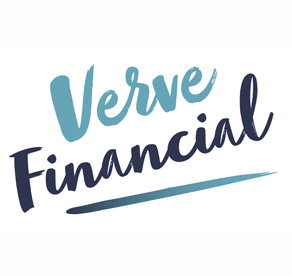Introduction To Savings & Investments
- This service is for information purposes only, we introduce any enquiries to a third party.
Home / Financial Planning / Savings & Investments / Introduction To Sav...
Body
Why Save?
Often, people save for a specific reason and it's usually the safest way to build up a pot of money.
It’s less risky than investing, but it offers limited growth. The most you'll earn on the money you save is the interest added. Saving is perfect for people who don’t want to take any risks with their money, and most savings accounts have easy access or are for a fixed term.
There are many different ways to save, but whichever way you choose, the general idea is the same: to build up some money - savings - that can be used, for example, to make a large purchase such as a new fridge, go on holiday, pay for school fees or cover the cost of expensive times like Christmas.
Savings also provide security by making sure that some money is put aside for emergencies or unexpected costs.
Helping You Find the Right Financial Advice
Take control of your financial planning with the right insights and expert connections. We help you explore your options and refer you to professionals who can provide tailored advice based on your needs.

Where Can I Put My Money?
There are a number of different types of savings products out there. The links in this section will provide a guide to what is available to you.
What's The Difference Between Saving and Investing?
Saving is a stage on the way to investing. You cannot be an investor without being a saver - but you can be a saver without being an investor.
When someone talks about savings and saving money, it could be referring to a piggy bank on the mantelpiece or a high interest deposit account. Savings are effectively cash or cash instruments, such as deposit accounts or term bonds.
Investing is what you can do with the savings you have created - if you are looking to generate a return on your money that is greater than what is already available to you through your savings instruments.
As a saver, you will be taking very few and very small risks with your money.
Make informed decisions and build a secure future with a tailored strategy. Through thorough research and scenario analysis, we provide valuable insights to help you explore your options and connect with the right professionals

As an investor you are taking a much greater risk. Not only is the return on offer to you likely not to be fixed or guaranteed, the capital sum you invest is at risk as well.
So why would anyone want to take such risks? The short answer, of course, is because the potential rewards may be greater, and you want to generate more from your money than is possible by simply leaving it in a bank or building society deposit account.
What Should I Do Now?
Since there are so many different types of savings and investments, and there are potential risks with investments in particular, it is wise to seek expert advice which can be tailored to suit your own circumstances.
Get in touch
When we tell you about a fee, you will always receive a clear explanation of: The total fee, the advice service it relates to, how it's been calculated, when you need to pay it and your payment options.
Warning Text

THE VALUE OF INVESTMENTS AND THE INCOME THEY PRODUCE CAN FALL AS WELL AS RISE. YOU MAY GET BACK LESS THAN YOU INVESTED. CASH ON DEPOSIT ADVICE IS NOT REGULATED BY THE FINANCIAL CONDUCT AUTHORITY.
Unlock the answers you seek- the best solutions often start with the right questions!
FAQs
-
Where are meetings held?
Meetings can be held virtually, via Zoom or Microsoft Teams. You can visit us in our Salisbury office, or we can travel to your home or place of work.
-
How can I book an initial meeting?
You email us at office@verve-financial.com, call us on 0330 320 5048 or fill in the contact form.



